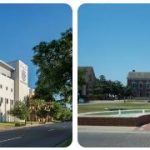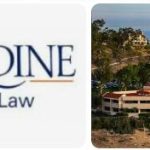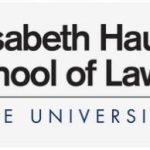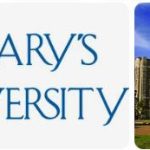Yale Law School was established in 1824 and is the third oldest law school in the United States. It is located in New Haven, Connecticut. The school has a long and distinguished history, having produced numerous prominent alumni, including Supreme Court justices, politicians, business leaders, and academics. The school has been committed to providing an excellent legal education since its founding. It offers a variety of courses to its students, including constitutional law, civil procedure, torts, contracts, criminal law and procedure, evidence, property law and environmental law. Yale Law School also provides opportunities for students to participate in clinical programs such as the Jerome N. Frank Legal Services Organization and the Allard K. Lowenstein International Human Rights Clinic. Additionally, it has a faculty of over 200 renowned scholars who are dedicated to providing an outstanding legal education to their students. Yale Law School is consistently ranked among the top three law schools in the country by U.S News & World Report and other publications due to its rigorous academic standards and commitment to excellence.
Yale University Law School is located in the state of Connecticut. As one of the leading law programs, Yale University Law School has a high average LSAT score of 170-176 when recruiting new students. As a return, the median starting salary for law graduates reaches $160,000 per year. See the following table for detailed admissions information and career profiles of Yale University Law School.
Founded: 1824
Address: 127 Wall Street, New Haven, CT 06511
Phone: (203) 432-4992
Admissions: Yale University
Yale Law School is one of the most prestigious and highly respected law schools in the world. Every year, thousands of applicants from around the world compete for a limited number of spots in the entering class. In 2020, Yale Law School received over 6,800 applications for a total of 200 spots in the incoming class. The acceptance rate was 2.9%, making it one of the most selective law schools in the country. Of those accepted, approximately 57% were female and 43% were male. Approximately 34% self-identified as students of color and 13% identified as international students. The average LSAT score for admitted students was 173 and the median GPA was 3.91. Moreover, Yale Law School is committed to providing financial aid to those who qualify; over 70% of students receive some form of need-based aid with an average grant amount of $30,000 per year. With its competitive admissions statistics and generous financial aid packages, Yale Law School continues to be one of the most sought after institutions for aspiring lawyers around the world.
| Fall 2019 Admissions and Enrollment Statistics | |
|---|---|
| Total number of full- and part-time applicants | 3,363 |
| Total number of full- and part-time acceptances | 270 |
| Overall acceptance rate | 8.0% |
| Total number of full- and part-time first-year students enrolled | 214 |
| Number of full-time program applicants | 3,363 |
| Number of full-time program acceptances | 270 |
| Full-time acceptance rate | 8.0% |
| Number of first-year full-time students enrolled | 214 |
| Number of part-time program applicants | N/A |
| Number of part-time program acceptances | N/A |
| Part-time acceptance rate | N/A |
| Number of first-year part-time students enrolled | N/A |
| Fall 2019 GPA and LSAT Scores | |
| 25th-75th percentile GPA scores for all students | 3.82-3.96 |
| 25th-75th percentile LSAT scores for all students | 170-176 |
| 25th-75th percentile undergraduate GPA for full-time students | 3.82-3.96 |
| 25th-75th percentile LSAT scores for full-time students | 170-176 |
| 25th-75th percentile undergraduate GPA for part-time students | N/A |
| 25th-75th percentile LSAT scores for part-time students | N/A |
Careers: Yale University
| Bar Statistics (Winter and Summer 2018 administrations) | |
|---|---|
| State where the greatest number of first-time test takers took the bar | NY |
| School’s bar passage rate for first-time test takers | 96.5% |
| Statewide bar passage rate for first-time test takers | 80.7% |
| Class of 2018 Graduates | |
| Total graduates | 200 |
| Graduates employed at graduation | 93.5% |
| Graduates known to be employed nine months after graduation | 98.1% |
| Starting Salaries of 2018 Graduates Employed Full-time | |
| 25th percentile private sector starting salary | $160,000 |
| Median private sector starting salary | $160,000 |
| 75th percentile private sector starting salary | $160,000 |
| Percent in the private sector who reported salary information | 87% |
| Median public service starting salary | $59,631 |
| Areas of Legal Practice (Class of 2018) | |
| Percent employed in academia | 2.6% |
| Percent employed in business and industry | 7.3% |
| Percent employed in government | 5.2% |
| Percent employed in all judicial clerkships | 35.1% |
| Percent employed in law firms | 41.4% |
| Percent employed in public interest | 8.4% |
| Percent employed in an unknown field | 0.0% |
| Percent employed in a judicial clerkship by an Article III federal judge | 31.4% |
| 2018 Graduates Employment Location | |
| Graduates employed in-state | 6% |
| Graduates employed in foreign countries | 3% |
| Number of states where graduates are employed | 28 |
| New England (CT, ME, MA, NH, RI, VT) | 11.0% |
| Middle Atlantic (NY, NJ, PA) | 26.7% |
| East North Central (IL, IN, MI, OH, WI) | 5.2% |
| West North Central (IA, KS, MN, MO, NE, ND, SD) | 3.7% |
| South Atlantic (DE, DC, FL, GA, MD, NC, SC, VA, WV) | 24.6% |
| East South Central (AL, KY, MS, TN) | 1.6% |
| West South Central (AR, LA, OK, TX) | 2.1% |
| Pacific (AK, CA, HI, OR, WA) | 19.4% |
| Mountain (AZ, CO, ID, MT, NV, NM, UT, WY) | 2.6% |
| Employment location unknown | 0.0% |
| Career Services | |
| (Data appear as originally submitted by this school) | |
| Career services operations | Please see our bulletin and/or website for this information. |
| Job Type | |
| Bar admission required or anticipated (e.g., attorney and corporate counsel positions, law clerks, judicial clerks) | 93.7% |
| J.D. preferred, law degree enhances position (e.g., corporate contracts administrator, alternative dispute resolution specialist, government regulatory analyst, FBI special agent) | 5.2% |
| Professional/other (jobs that require professional skills or training but for which a J.D. is neither preferred nor particularly applicable; e.g., accountant, teacher, business manager, nurse) | 1.0% |
| Nonprofessional/other (job that does not require any professional skills or training or is taken on a temporary basis and not viewed as part of a career path) | 0.0% |









